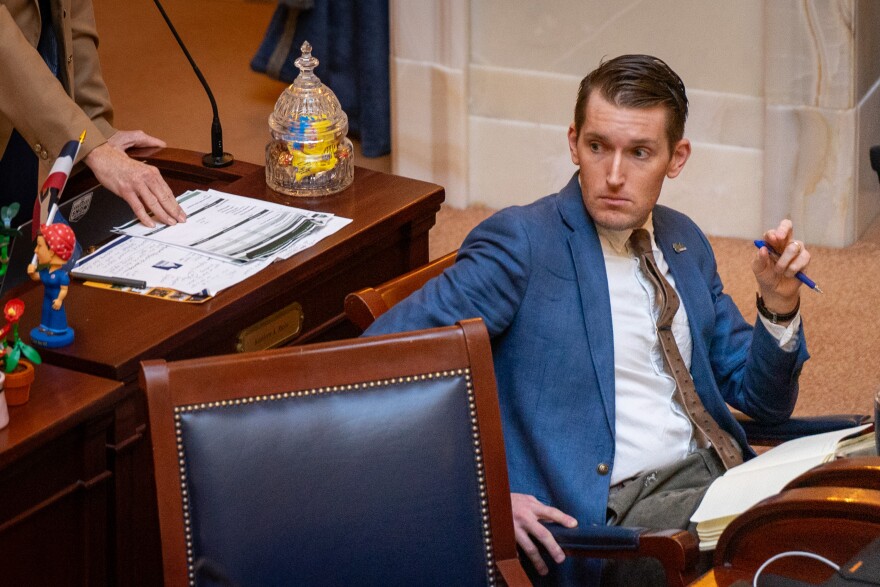The list of candidates for Utah’s redrawn 1st Congressional District just keeps growing. Two new additions bring the count to five — and all of them are left-leaning.
State Sen. Nate Blouin announced his candidacy Nov. 24, and political newcomer Luis Villarreal also entered the race. The pair joins state Sen. Kathleen Riebe, former congressman Ben McAdams and former state Sen. Derek Kitchen.
Blouin first entered politics in 2022, defeating incumbent Gene Davis in the Democratic primary and securing a seat in the Utah Senate later that year. Since taking office in early 2023, he has been one of the most progressive and outspoken members of the Legislature, an approach he plans to highlight in the coming months.
“I've gotten my mic cut off, I've gotten called a punk for being that kind of voice, but I think that's what I hear people are looking for,” he told KUER. “That's what it feels like is the sort of person that people want to see advocating on their values right now and advocating for their interests.”
Blouin’s professional background is in clean energy policy, and on the campaign trail he plans on centering issues like affordable housing and child care, calling it “unacceptable” that a family might have to choose between the two.
“People my age are setting aside the dream of home ownership because of child care quality, child care costs,” the millennial lawmaker said. “There's plenty of other issues around affordability, around conservation and clean energy that I want to focus on, but those are definitely at the top.”
The new district could favor a more progressive candidate. On Nov. 10, Third District Court Judge Dianna Gibson ruled that the lawmaker-drawn map used in the last election did not comply with Proposition 4, which bans partisan gerrymandering. Instead, Gibson chose a map that centered the 1st Congressional District on left-leaning Salt Lake County.
Despite the enthusiasm from Utah Democrats, the map’s ultimate fate could still be up in the air. GOP lawmakers asked for a stay in the case due to technical issues with the new map. If that stay is granted, the 2021 map could go back into effect, eliminating the new left-leaning district.
Blouin said while he had toyed with the idea of a run for federal office ever since a new map was a possibility, he only began to seriously consider it after Gibson’s ruling.
“Certainly, my politics don't align themselves with a more moderate district, but we ended up getting this really exciting decision that puts forward a map that Kamala Harris won by 24 points,” he said.
In Blouin’s view, another advantage is that he already represents a good portion of the new District 1 in the Utah Senate. He said he will run a community-focused campaign and will not accept any corporate donations.
But he may have some competition for the title of most progressive.
That is a title that newcomer Luis Villarreal, a Utah native and software engineer, is branding himself with.
“[I’m] someone who isn’t afraid to push for stronger worker protections, real housing reform, universal health care access, climate action, and civil rights,” he wrote in social media posts announcing his candidacy.
According to his campaign website, Villarreal has never held public office. He pledges to fight for policies like Medicare for all and more power for the working class.
The door is wide open for more progressive candidates like Blouin and Villarreal in this new district, said Olene S. Walker Institute of Politics & Public Service Leah Murray. In fact, she thinks the winning candidate could be a surprise.
“I legit think it might be some new name we haven't heard of,” she said.






